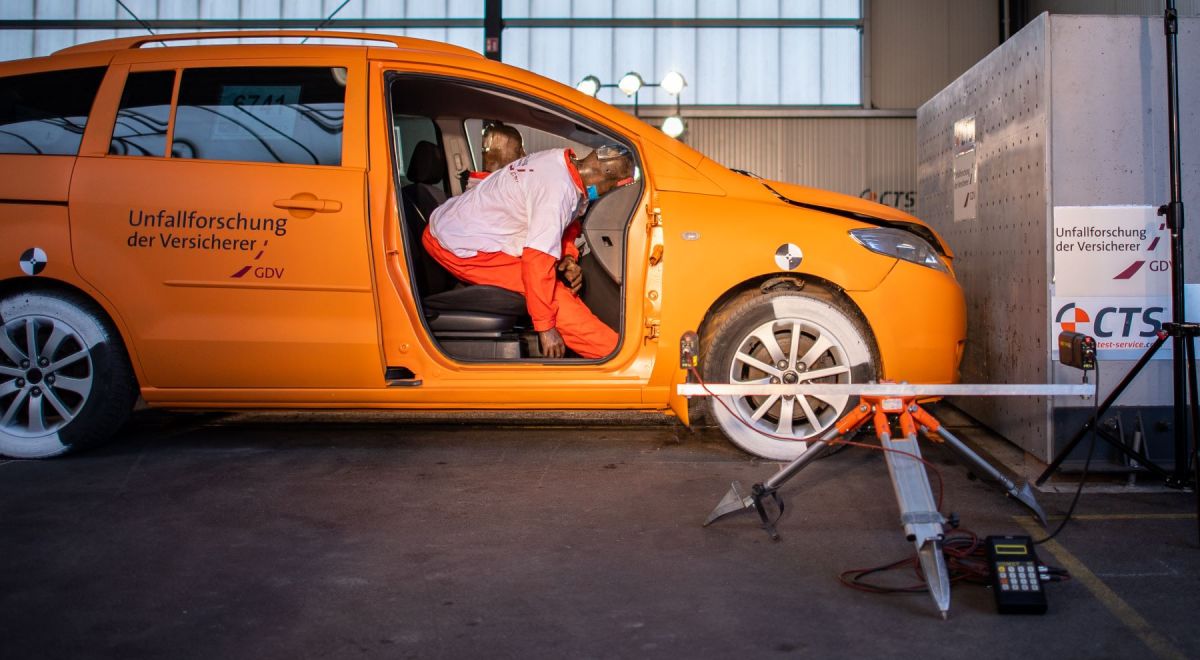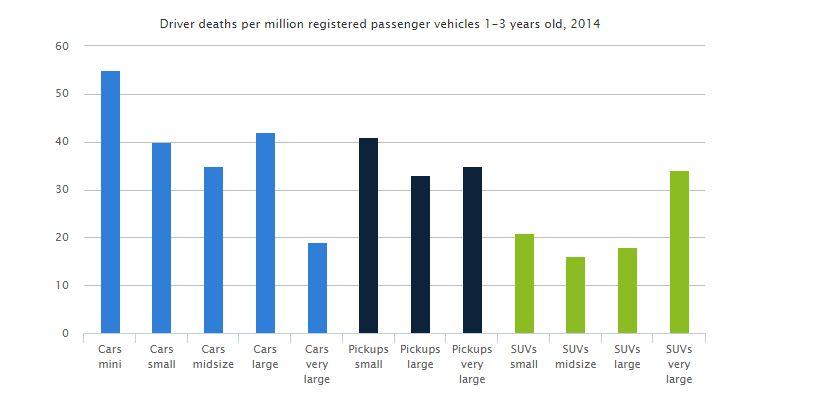That is not clear. At all.
Are larger vehicles or small vehicles safer? We look at the safety pros and cons of each kind of motor vehicle.

www.motorbiscuit.com
" As such, in collisions involving similarly rated vehicles, occupants of the larger vehicle tend to fare better. Ultimately, this means you’ll be safer in a larger vehicle if you collide with other cars. That said, given that these cars are more prone to different types of accidents, you can’t claim them to be safer overall than smaller vehicles."
We all know that larger, heavier vehicles are always safer, except that’s not what the real-world data indicate. In the real world, two of the largest, heaviest passenger vehicles on the road, the Chevy Suburban 2WD, and the Ford Expedition 2WD have driver death rates higher than the compact...

bestride.com
The statement "bigger is safer" focuses on one aspect, a collision with another car. But even if the survivability of that is higher, the larger number of accidents (e.g. rollovers) may make the total probability of SHTF be worse than that of a small car.
I also note that in collisions with stationary objects (that don't budge, e.g. mature trees in rural America... ), a big car brings a lot more kinetic energy to the incident - all of which has to be dissipated in that bigger car.
Things are not as black and white as "bigger is safer".




![[Hearth.com] Bolt production to stop [Hearth.com] Bolt production to stop](https://www.hearth.com/talk/data/attachments/312/312501-ac62bc701aaf62990a26475ab88b4d01.jpg?hash=eKt6uPYB4o)
![[Hearth.com] Bolt production to stop [Hearth.com] Bolt production to stop](https://www.hearth.com/talk/data/attachments/312/312502-77249d2b5226882d839d70575152fc15.jpg?hash=7i9sK_EetX)

